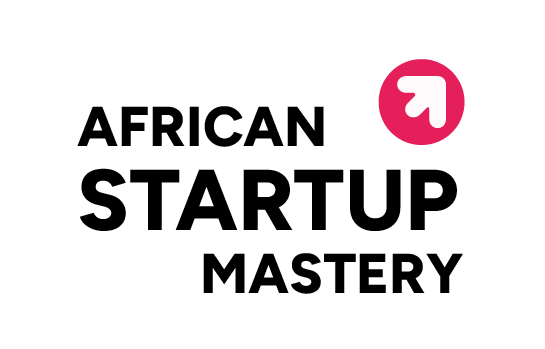You have a great idea for a startup. You’ve identified a gap in the market and developed a solid solution. That’s a fantastic start, but is it really enough? Is it enough for investors to see all that potential and believe in your vision?
Africa is teeming with entrepreneurial spirit, innovation, and untapped potential. Entrepreneurs across the continent are identifying different problems and coming up with groundbreaking solutions.
Venture capitalists (VCs) see hundreds, if not thousands, of different pitches every year. To get a venture capitalist to choose you, your startup has to stand out in multiple ways.
But what does it take to catch the eye of a venture capitalist in the African market? Knowing what venture capitalists (VCs) look for can greatly improve your chances of getting their investment.
If you understand their priorities, you can tailor your pitch to meet their expectations, increasing the likelihood of securing funding for your business.
Here’s a deep dive into the key factors that make African startups irresistible to venture capitalists.
1. Big Market Potential and Scalability
Nobody wants to invest in a one-market wonder. Venture capitalists want to see that your idea has the potential to grow and adapt to different markets across Africa, or even the world. There is a lot of immense growth opportunities out there.
VCs are on the lookout for startups that not only address a local problem but also have the potential to scale regionally or even globally.
They are keen on businesses that can tap into the vast consumer base across different African countries and expand their reach.
VCs assess the size of the target market and a startup’s ability to capture a meaningful share of it. You should ask yourself questions like, “Is this solution scalable? Am I targeting a broad audience, or is it just a niche?”
A great example of a startup that demonstrates good market potential and scalability is Opay. In just a few years, Opay has become a household name, with millions of users, a widespread network of agents, and a variety of services.
This success naturally attracted many venture capitalists who are increasingly betting on African startups. These investors include Sequoia Capital China, DragonBall Capital, Redpoint China, and Source Code Capital.
In 2021, Opay secured $400 million in a new funding round led by SoftBank Vision Fund, the venture capital arm of Japanese conglomerate SoftBank.
This became the single-largest investment round secured by an African-based startup and marked the first investment in a startup on the continent by the SoftBank Vision Fund.
If there’s anything the above tells you, it’s that your startup needs to show it can grow and thrive across multiple markets to attract serious investment.
2. Strong and Adaptable Business Model
Your business model isn’t just about making money; it’s about making sure you can keep making money. Venture capitalists need to see how your startup plans to generate revenue and sustain itself over the long haul.
This means having a clear revenue model, understanding your cost structure, and identifying the key resources and activities that will drive your business forward.
In Africa, market conditions can be unpredictable, so having an adaptable business model is particularly important. It’s not just about having a great idea—it’s about proving that your idea can survive and thrive, no matter what challenges come your way.
3. A Solid Team and Leadership Structure
Your team is the heart and soul of your startup. Venture capitalists invest in people as much as they invest in ideas, so having the right mix of skills, experience, and passion is crucial. A strong team can be the difference between success and failure.
VCs are looking for founders and teams who can execute their business plans effectively. This means showing that your team understands the market, has the necessary technical expertise, and can work together seamlessly.
It’s not just about having a good idea or business model—it’s about proving that your team can bring that idea to life.
When VCs evaluate your team, they want to know how well you work together. Can you handle tough conversations and solve problems as a group? Are you prepared to navigate the ups and downs of startup life?
A cohesive, high-performing team that can stick together through challenges is incredibly attractive to investors.
Founders need to demonstrate real leadership and the ability to inspire their teams. VCs want to see that you can lead effectively. They look for evidence of grit, determination, and previous successes.
Show them that you have what it takes to guide your startup through both good times and bad.
In essence, VCs are investing in the people who will execute the idea. Make sure to highlight your team’s strengths, their ability to work together, and their commitment to making your vision a reality.
If your team has worked on similar projects together (and succeeded at it), include that while pitching your startup.
4. Reasonable Cash Flow Burn Rate
Running a startup often means dealing with the dreaded burn rate—the speed at which a company consumes its capital to cover operating expenses before reaching profitability.
A high burn rate can lead to frantic scrambles for cash from banks or creditors, forcing startups to accept unfavorable financing terms, merge prematurely, or even go bankrupt.
If you’re on your way to building a unicorn startup—those rare companies valued at over $1 billion—understanding and managing your burn rate is crucial.
Investors view burn rate through a bifocal lens. While they expect some level of cash consumption in exchange for rapid growth, they also demand a clear path to profitability. This balance is key to keeping investors confident and on board.
Take, for instance, the recent story of Mara, a Pan-African crypto exchange startup that set out to “build Africa’s crypto economy.” When Mara first launched, it was a hit with investors.
In May 2022, they raised significant funds from Alameda Research and over 100 other investors at a pre-money valuation of $70 million. However, within just two years, Mara ran out of cash. Due to several missteps, the company experienced a huge cash burn during its growth phase, leading to its downfall.
Investors don’t want to put their money into a startup that’s burning cash with no end in sight. They need to see a company’s available cash, capital expenditures, and cash flow burn rate before deciding to invest.
By carefully monitoring and managing these financial metrics, you can reassure venture capitalists that their investment is in safe hands and that your startup has a viable path to success.
5. Innovative and Disruptive Solutions
Innovation is at the core of what venture capitalists seek. Startups are known for their ability to use fresh ideas and technology to revolutionize business. To be truly successful, your startup must embrace innovative thinking.
This means constantly searching for new and better ways to solve problems. It’s about challenging the status quo and thinking outside the box, which is essential for staying ahead of the competition and attracting customers.
African startups that bring innovative and disruptive solutions to the table have a much better chance of securing investment. It’s not just about copying successful models from other regions; it’s about finding the unique “African” way to solve problems.
This means offering something distinctive that sets you apart from existing solutions. Whether you’re leveraging technology, creating a new business model, or addressing a problem in a novel way, your startup needs to present a compelling value proposition that excites investors.
To truly build an investment-worthy startup in Africa, your solution must address local challenges in innovative ways. It should be something that resonates with the market and provides clear benefits that current solutions do not.
6. Traction and Proof of Concept
Traction is your startup’s way of showing that people want what you’re offering. It’s about showing that your product is gaining popularity and being adopted by the market. Before committing their funds, VCs want to see evidence that your business is gaining traction.
This could be through user growth, revenue, partnerships, or any other metric that shows your startup is making progress.
Examples include African fintech startups like Flutterwave and Paystack. Flutterwave, founded in 2016, has processed over 600 million transactions in excess of USD $30 billion and serves more than 1.5 million businesses, including customers like Uber, Airpeace, Bamboo, and Piggyvest.
This level of traction attracted significant investments, including a $170 million Series C round in 2021, which catapulted it to unicorn status.
Similarly, Paystack, which simplifies payments for businesses in Africa, was able to show significant traction through its rapid user growth and strong revenue streams.
This traction led to its acquisition by Stripe for over $200 million in 2020, marking one of the largest exits in the African startup ecosystem.
The more evidence you can provide that your startup is on the path to success, the more confident investors will be in backing you.
To effectively communicate your traction, consider highlighting:
- Profitability: Are you making a profit, or on the path to it?
- Revenues: How much money is your startup generating?
- Active Users: How many users are actively engaging with your product or service?
- Engagement: How engaged are your users? Are they frequently using your product?
- Partnerships/Clients: Have you secured any significant partnerships or clients?
- Traffic: How much traffic is your website or app attracting?
Showing strong traction through these metrics can make a compelling case to investors that your startup has real potential and is worth their investment.
Conclusion
Securing venture capital is no easy feat, but with the right approach, it’s certainly achievable. By focusing on these key factors, African startups can position themselves as attractive investment opportunities.
Knowing what venture capitalists want helps you prepare your startup to meet their expectations, boosting your chances of getting the funding needed to grow and succeed.
Take up the challenge, refine your pitch, and show the world what your startup can achieve. With the right preparation, your startup could be the next big success story.
Share this article


Leave a Reply